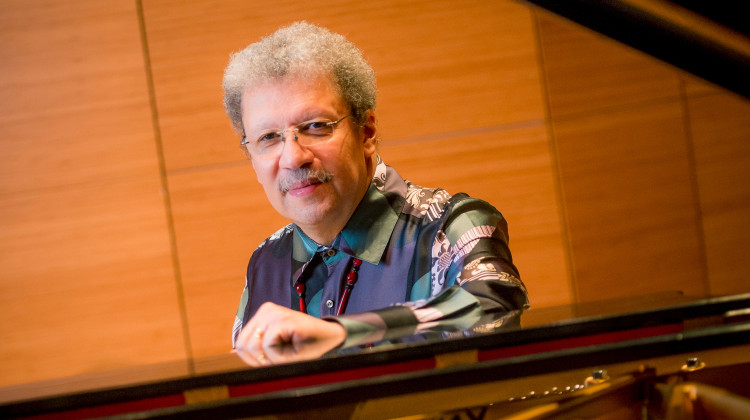American opera companies are producing as much drama in the boardroom as onstage. New York City Opera folded in 2013 after years of unbalanced budgets. In March of this year, San Diego Opera announced that its current season, which ends in April, will be its last. While the California company — the nation's 10th largest — isn't in imminent danger, its board feels future fundraising verges on the impossible.
Yet one opera company has vowed to do what it does best until it gets the money it needs. For more than 60 years, Texas-based Rio Grande Opera has attracted world-class singers, directors, conductors and composers to its lavish McDermott Opera House. But as the economy began its freefall, and with no new major donors forthcoming, they hit on a last-ditch strategy no one had ever tried before: a pledge drive marathon they're calling a Lone Star Wagnerrama.
"We're doing the Wagner Ring cycle. And we're not stopping until we've raised the money we need for next season," says Rio Grande Opera General and Artistic Director Christopher Hewitt. And when he says they're not stopping, he means it. Wagner's Der Ring des Nibelungen (The Ring of the Nibelungs) is a set of four operas ranging from 2 1/2 to 6 hours long, generally played over the course of a week. Rio Grande Opera is starting tonight at 7 Central and playing the operas back to back with only 10 minutes in between them until they raise $8 million.
"We thought about having some sort of benefit concert with, say, a Plácido Domingo or a Renée Fleming, but that's been done," Hewitt says. "We wanted to show people how much we care, that like Davy Crockett at the Alamo, we are literally going to do what we do or die trying."
The Ring includes such famous moments as the "Ride of the Valkyries," popularized by Bugs Bunny and the film Apocalypse Now. The cycle begins and ends underneath the Rhine River with a gold ring that sets off an epic struggle between various humans, gods and all sorts of mythical creatures — from a dragon to a green-faced torso named Erda.
Soprano Annabelle Spleet is one of the Rhinemaidens who open the first opera, Das Rheingold. "As a Texan," Spleet says, "I'm excited about this opportunity to help the company I grew up going to see. I swam while I was in music school at UT, so swimming for hours on end is nothing new for me."
Performing for what could be anywhere from 16 to 48 to even 96 hours isn't just demanding for the singers. It's especially tough for the one person who's working the entire time, the conductor. "I'm ready," says Rio Grande Opera Chief Conductor Domenico Campanati. "Strangely enough, the challenge is more mental than physical. If my arm starts to get tired, I just put the baton in the other hand, but I've only got one brain. Still, the music is so beautiful. It literally flows like a river — so I can let myself get swept along. And I'll have an espresso machine next to the podium."
Stagehands, ushers and box office staffs are also working 24-hour shifts until the fundraising goal is reached.
"Texas is a right-to-work state," says head stagehand José "Hoss" Dovalina, "so we had an easier time relaxing the union rules for this Ring cycle or, maybe, cycles. But if anyone can make it burn and flood over and over again, it's us."
And Hewitt says the company's development staff has come up with novel ways to raise money: "We've got a spontaneous jewelry donation program called Throw Your Ring in the Hat. The Texas Air National Guard is giving helicopter rides to people who make the biggest pledges. And by total coincidence, Conan O'Brien is in Dallas this week and using Wagner to promote his shows. So that's a good omen."
Hewitt says that if this all-night, conceivably all-week Wagner marathon works, Rio Grande Opera could do it again in early April next year. Then again, he says, this event could be shorter than anyone expects: "We've had plenty of board members who've heard we're doing Wagner and said, 'We'll pay to make it stop!'"
9(MDEwMDc1MzM3MDEzNDczOTA0MDc1MzViMQ001))
 DONATE
DONATE








 Support WFYI. We can't do it without you.
Support WFYI. We can't do it without you.